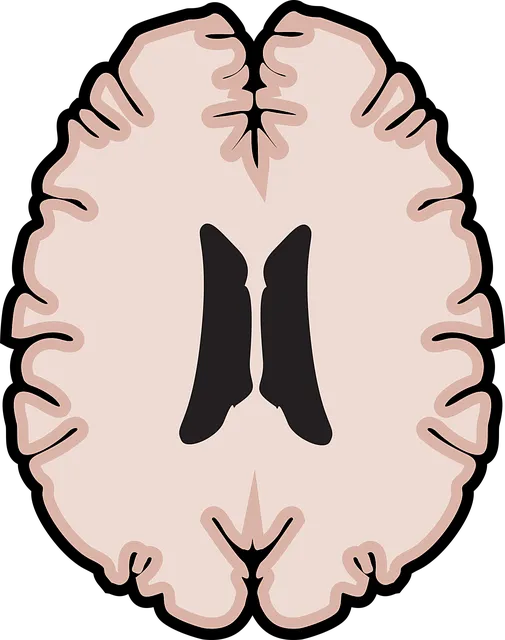The RFM framework, a powerful tool for self-care and mental well-being, emphasizes resilience through three pillars: Recovery, Flexibility, and Mastery. Adopted by institutions like Kaiser Permanente Norcal, it includes stress management workshops and exercises to build adaptability and healthy coping mechanisms. Their dedicated Kaiser Permanente mental health phone number Norcal Superior connects individuals to professionals, offering teletherapy and improving outcomes. Effective resilience training programs, integrating self-awareness and positive thinking, empower people to navigate challenges optimistically. Comprehensive assessments measure program success, enabling tailored Mental Health Education Programs for community-specific needs.
“Resilience is a cornerstone of mental well-being, especially in today’s fast-paced world. This article explores the power of RFM (Recovery, Flexibility, and Mastery) as a framework for building resilience through targeted exercises. We delve into how these practices can significantly enhance mental health support, particularly through innovative phone-based services offered by Kaiser Permanente Norcal. By examining successful implementation strategies and measurement techniques, we uncover the impact of RFM initiatives, highlighting their potential to transform lives.”
- Understanding RFM: A Framework for Resilience Building
- The Role of Exercises in Mental Health Support
- Kaiser Permanente Norcal: A Focus on Phone-Based Services
- Implementing Effective Resilience Training Programs
- Measuring Success: Evaluating the Impact of RFM Initiatives
Understanding RFM: A Framework for Resilience Building

Resilience is a vital asset in navigating life’s challenges and uncertainties, and the RFM framework offers a structured approach to building this strength. RFM stands for Recovery, Flexibility, and Mastery, a trio of principles designed to empower individuals to overcome adversity. This framework has been widely adopted by organizations like Kaiser Permanente Norcal, recognizing its potential to enhance mental health and overall well-being.
By focusing on these three core aspects, RFM provides a comprehensive strategy for self-care practices. It encourages individuals to cultivate self-awareness exercises that promote flexibility in thought and action, enabling them to adapt effectively to changing circumstances. Moreover, it emphasizes the importance of stress management workshops within organizations, fostering an environment where employees can learn and practice tools to manage stress, ultimately leading to improved mental health outcomes.
The Role of Exercises in Mental Health Support

Exercises play a pivotal role in enhancing mental health support, especially for individuals seeking resources like the Kaiser Permanente mental health phone number Norcal Superior. Engaging in structured activities designed to build resilience can significantly improve an individual’s ability to cope with stress and adversity. These exercises often form the backbone of services such as Social Skills Training and Crisis Intervention Guidance, offering practical tools to navigate challenging situations.
By integrating Trauma Support Services into these exercises, individuals can learn healthy coping mechanisms while processing and healing from past traumas. Such practices foster a sense of agency, enabling people to take charge of their mental well-being. This proactive approach not only prevents relapse but also empowers individuals to lead more fulfilling lives, ensuring they have the necessary resilience to overcome life’s hurdles.
Kaiser Permanente Norcal: A Focus on Phone-Based Services

Kaiser Permanente Norcal has been at the forefront of providing accessible mental health services, particularly through their phone-based initiatives. This approach has proven invaluable, especially in reaching a broader audience who may face barriers to in-person therapy. By offering a dedicated Kaiser Permanente mental health phone number Norcal, they ensure that individuals across the region can readily connect with professionals for support.
This strategy not only enhances accessibility but also promotes various benefits such as self-esteem improvement and stress reduction methods. Through teletherapy sessions, clients can practice mood management techniques while enjoying the convenience of home-based care. Kaiser Permanente’s commitment to innovative delivery models has undoubtedly contributed to improved mental well-being outcomes for countless individuals in need.
Implementing Effective Resilience Training Programs

Implementing effective resilience training programs is a critical step in fostering mental well-being and preparedness among individuals. Organizations like Kaiser Permanente Norcal have recognized the importance of such initiatives, especially in light of the growing demand for accessible mental health services. By integrating these programs into their offerings, they empower individuals to navigate life’s challenges with greater agility and resilience.
Resilience training goes beyond mere coping mechanisms; it involves a multifaceted approach that includes Self-Awareness Exercises, Positive Thinking strategies, and Cultural Sensitivity in Mental Healthcare Practice. These exercises help participants develop a deeper understanding of their emotional responses, fostering an environment where individuals feel safe to explore their thoughts and feelings. Through interactive and engaging activities, trainees learn to build mental fortitude, enabling them to bounce back from setbacks with enhanced adaptability and optimism.
Measuring Success: Evaluating the Impact of RFM Initiatives

Measuring success is a vital aspect of any initiative, and when it comes to RFM (Resilience and Resilience-Building Exercises) programs, evaluating their impact is crucial. At Kaiser Permanente Norcal, we understand that mental health support is essential, which is why we’ve incorporated comprehensive assessment tools into our RFM initiatives. These assessments go beyond simple surveys; they involve in-depth interviews and focused groups with participants to gain qualitative insights.
By combining quantitative data from pre and post-program evaluations with the rich information collected through these interviews, we can effectively gauge the success of our RFM programs. This approach ensures that we not only identify improvements in stress management and mental well-being but also understand the specific aspects of the program that resonate most with participants. As a result, we can tailor Mental Health Education Programs Design to meet the unique needs of our community, ensuring that services like the Kaiser Permanente mental health phone number Norcal remain superior and impactful.
Resilience is a crucial aspect of mental well-being, and programs like Kaiser Permanente Norcal’s innovative approach using RFM (Resilience, Flexibility, and Mastery) framework show significant promise. By combining phone-based services with structured resilience exercises, they’ve created a powerful tool for enhancing mental health support. Implementing effective resilience training programs can lead to tangible improvements, as evidenced by the success of Kaiser Permanente’s initiatives. This approach not only empowers individuals but also contributes to a more resilient and supportive community overall, making it a valuable strategy in the world of mental health care.






